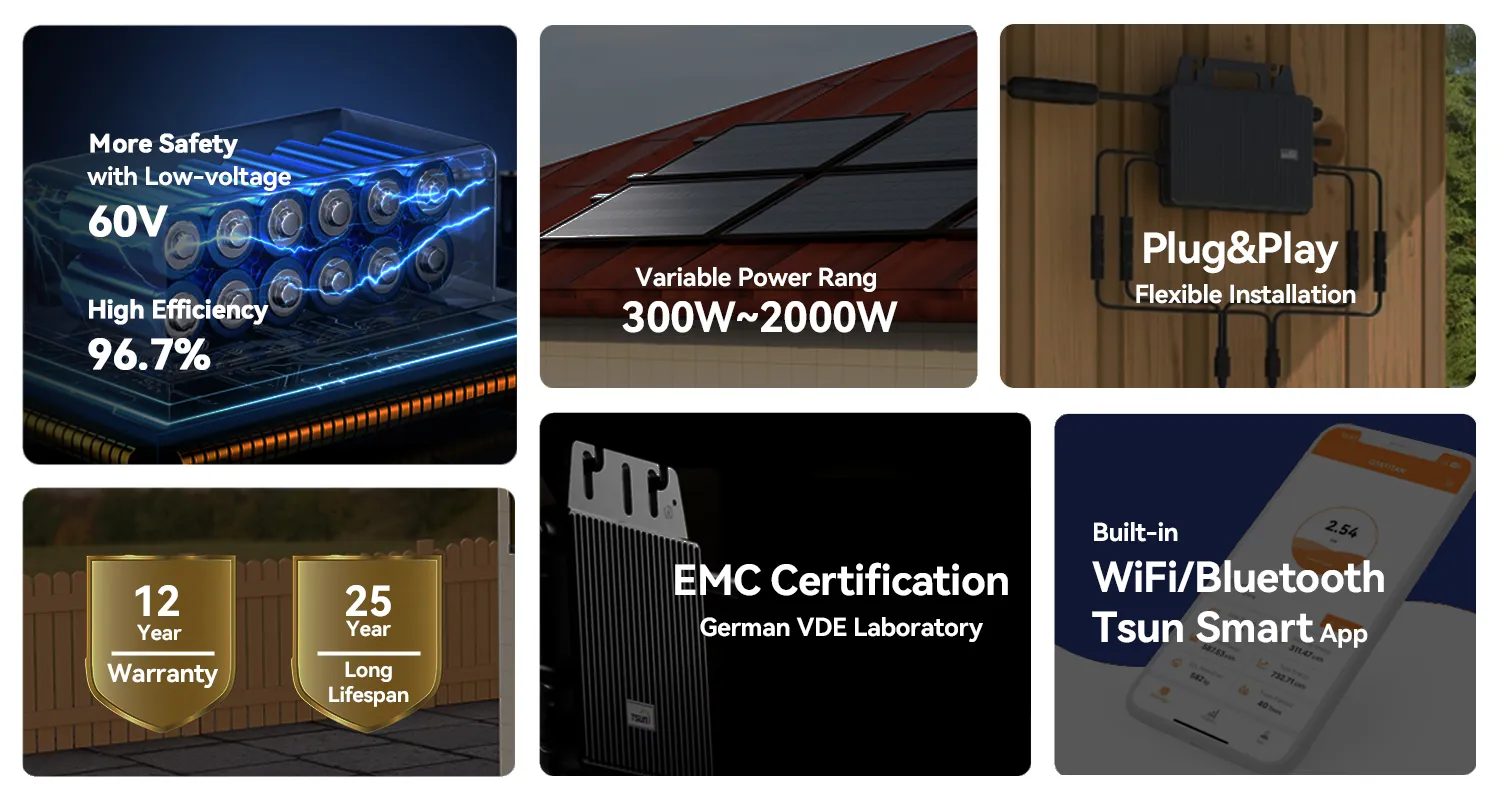Easy Solar Kit (with microinverter)
 LEARN DETAILS
LEARN DETAILS
 News
News
Table of contents
Battery Storage Systems for Home A Sustainable Solution for Energy Independence
In today's world, where the consequences of climate change are becoming increasingly evident, the need for alternative energy solutions has never been more pressing. Among these solutions, battery storage systems for homes stand out as a viable option for maximizing energy efficiency and promoting sustainability. These systems not only allow homeowners to harness solar energy more effectively but also provide a reliable backup during power outages and contribute to overall energy independence.
Understanding Battery Storage Systems
Battery storage systems work by collecting energy produced from renewable sources, primarily solar panels. During sunny days, homeowners can generate excess electricity that would typically be sent back to the grid. However, with a battery storage system in place, this excess energy can be stored for later use, making the household less reliant on electricity from the grid. This stored energy can be used during the night, on cloudy days, or during peak usage times when electricity rates are higher.
The two most common types of batteries used in home energy storage systems are lithium-ion batteries and lead-acid batteries. Lithium-ion batteries are favored for their higher energy density, longer lifespan, and better efficiency compared to lead-acid batteries. However, they tend to come with a higher upfront cost, which can be a consideration for many homeowners when choosing a system.
Benefits of Battery Storage Systems
1. Energy Independence One of the most significant advantages of having a battery storage system at home is increased energy independence. By storing renewable energy, homeowners can reduce their reliance on the electrical grid, leading to less vulnerability to rising energy costs or fluctuations in supply.
2. Cost Savings In many regions, energy prices vary throughout the day, with peak hours costing significantly more. Home battery storage systems allow homeowners to effectively 'time-shift' their energy usage; they can store energy during off-peak times when prices are lower and use it during peak hours, ultimately leading to substantial savings on electricity bills.

3. Backup Power In the event of a power outage, battery storage systems can provide a reliable source of backup power. This is particularly valuable for households with medical equipment that requires uninterrupted power or for anyone who wants to maintain basic functions such as refrigeration during an outage.
4. Environmental Impact Utilizing battery storage systems encourages the use of clean energy sources, thus decreasing an individual’s carbon footprint. By maximizing the use of solar energy and minimizing reliance on fossil fuels, homeowners can contribute to a more sustainable and eco-friendly energy future.
5. Maintenance and Longevity Modern battery storage systems are designed for long-term durability. With proper maintenance, many lithium-ion batteries can last 10 to 15 years or longer, making them a worthwhile investment in the long run. Additionally, they require minimal upkeep compared to generators or other backup power solutions.
Challenges and Considerations
Despite the numerous advantages, battery storage systems are not without challenges. The initial cost of installation can be a significant barrier for many homeowners, as upfront investments can range from a few thousand to tens of thousands of dollars, depending on the size and capacity of the system.
Moreover, homeowners must assess their energy needs and consumption patterns thoroughly to choose the right system. An oversized system can lead to unnecessary expenses, while an undersized one may not provide adequate power during critical times. Therefore, consulting with energy experts and conducting a comprehensive energy audit can help in making informed decisions.
Conclusion
As we navigate the complexities of energy consumption and climate change, battery storage systems for homes emerge as a powerful tool for promoting sustainability and energy independence. With benefits ranging from cost savings to reliability during power outages, these systems are becoming increasingly popular among homeowners. As technology continues to develop and prices for energy storage solutions decline, we can anticipate widespread adoption of battery storage systems, paving the way for a more sustainable future. Ultimately, investing in battery storage is not just about energy savings; it's about making a responsible choice for the environment and future generations.

